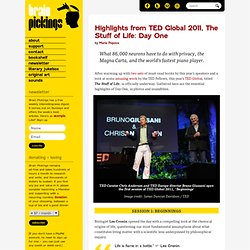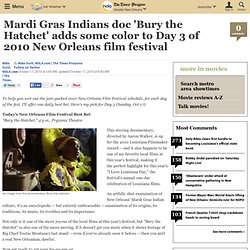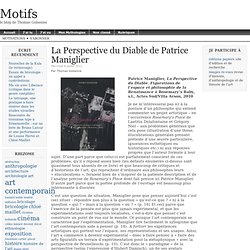

"François Duprat, une histoire de l'extrême-droite": ce webdoc qui va là où la télé ne va pas. C’est un temps que les moins de 50 ans ne peuvent pas connaître.

Que ceux qui n’étaient pas nés dans les années 60-70, qui n’ont pas vécu l’onde de choc de l’après-mai 68 ne comprendront sans doute pas ou regarderont d’un œil narquois. Un temps de passion politique extrême où étudiants et lycéens se divisaient en deux camps : fafs contre bolchos, nationalistes et néo-fascistes contre trotskystes et maos, Fac d’Assas contre Sorbonne et Nanterre. The Rise of the New Groupthink. List of common misconceptions. From Wikipedia, the free encyclopedia This incomplete list is not intended to be exhaustive.

This list corrects erroneous beliefs that are currently widely held about notable topics. Each misconception and the corresponding facts have been discussed in published literature. Note that each entry is formatted as a correction; the misconceptions themselves are implied rather than stated. Arts and culture Food and cooking Roll-style Western sushi. Searing meat does not "seal in" moisture, and in fact may actually cause meat to lose moisture. Legislation and crime Literature The Harry Potter books, though they have broken children's book publishing records, have not led to an increase in reading among children or adults, nor slowed the ongoing overall decline in book purchases by Americans, and children who did read the Harry Potter books were not more likely to go on to read more outside of the fantasy and mystery genres.[21][22][23][24] Music Religion Hebrew Bible Buddhism Christianity Islam Sports.
Think with Google - Your resource for industry trends & insights. Highlights from TED Global 2011, The Stuff of Life: Day One. By Maria Popova What 86,000 neurons have to do with privacy, the Magna Carta, and the world’s fastest piano player.

After warming up with two sets of must-read books by this year’s speakers and a look at some amazing work by the TED Fellows, this year’s TED Global, titled The Stuff of Life, is officially underway. Gathered here are the essential highlights of Day One, in photos and soundbites. TED Curator Chris Anderson and TED Europe director Bruno Giussani open the first session of TED Global 2011, 'Beginnings' Image credit: James Duncan Davidson / TED Biologist Lee Cronin opened the day with a compelling look at the chemical origins of life, questioning our most fundamental assumptions about what constitutes living matter with a scientific lens underpinned by philosophical inquiry.
Life is flame in a bottle.” ~ Lee Cronin Chemist Lee Cronin Biology doesn’t care about the design unless it works.” ~ Lee Cronin We’re learning about the world before we even enter it.” ~ Annie Murphy Paul. Mardi Gras Indians doc 'Bury the Hatchet' adds some color to Day 3 of 2010 New Orleans film festival. To help you sort out the jam-packed 2010 New Orleans Film Festival schedule, for each day of the fest, I'll offer one daily best bet.

Here's my pick for Day 3 (Sunday, Oct 17): Today's New Orleans Film Festival Best Bet: "Bury the Hatchet," 4 p.m., Prytania Theatre An image from the documentary 'Bury the Hatchet.' This stirring documentary, directed by Aaron Walker, is up for the 2010 Louisiana Filmmaker Award -- and it also happens to be one of my favorite local films at this year's festival, making it the perfect highlight for this year's "I Love Louisiana Day," the festival's annual one-day celebration of Louisiana films. An artfully shot examination of New Orleans' Mardi Gras Indian culture, it's an encyclopedic -- but entirely embraceable -- examination of its origins, its traditions, its music, its troubles and its importance. Not only is it one of the more joyous of the local films at this year's festival, but "Bury the Hatchet" is also one of the more moving.
La Perspective du Diable de Patrice Maniglier. Patrice Maniglier, La Perspective du Diable.

Figurations de l’espace et philosophie de la Renaissance à Rosemary’s Baby, s.l., Actes Sud/Villa Arson, 2010 Je ne m’intéresserai pas ici à la posture d’un philosophe qui entend commenter un projet artistique – en l’occurrence Rosemary’s Place de Laetitia Delafontaine et Grégory Niel – aux problèmes généraux que cela pose (illustration d’une thèse, élucubrations générales prenant prétexte d’une œuvre particulière, ignorances esthétiques ou historiques etc.) ni aux réponses propres que l’auteur formule à leur sujet. C’est une question de situation. Maniglier pose que penser aujourd’hui c’est (se) situer : répondre non plus à la question « qu’est-ce que ?
» ni à la question « qui ? R. La programmation du monde : où nous mène la convergence technologique.